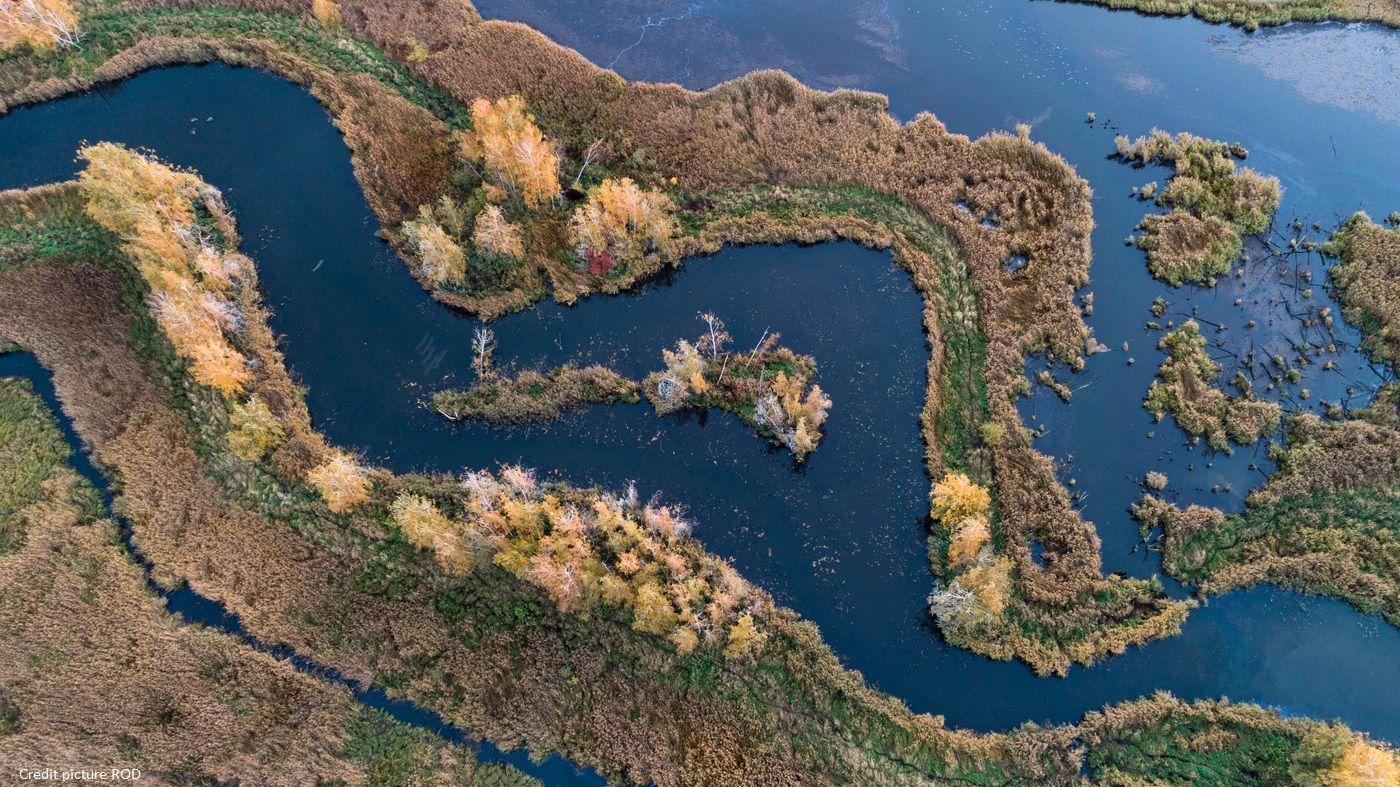Bringing life to the Oder River, from the source to the sea
In the coming days, July 31st-August 4th, 2023, various river stakeholders (academic staff, water-related institutions, municipalities and government representatives, locals, NGOs, business owners, individuals) from 11 European countries will visit the
Oder Delta during the 4th edition of the international
River University (1), organised by Coalition Clean Baltic (CCB) in collaboration with Rewilding Oder Delta (ROD).
Taking the Oder River as an example and focusing on water pollution and risk management, they will explore the impact of the river's condition on the Baltic Sea, as well as climate change's consequences on the waters in the region.

The need for recovery
In 2022, the Oder, the transboundary river of Poland, Germany and Czech Republic, having one of the extraordinary European deltas, experienced the worst scenario of environmental catastrophe on Europe's scale, caused by anthropogenic pollution (2). To this day, the Oder River still registers a high level of salinity and conductivity. Saline discharges are an ongoing threat, and the toxic “golden algae” Prymnesium parvum are still present in the waters, with fish kills at specific points observed. These issues represent significant challenges for a smooth recovery.
"The Oder River recovery should be addressed holistically rather than in silos. We need a source-to-sea approach and awareness of the role that healthy rivers play in achieving a Good Environmental Status in the Baltic Sea. Sustainable use and protection are the only long-term, wise approaches to such riverine areas. It is a well-known fact that natural rivers have a greater self-cleaning capacity, offering many benefits to their users," - says Peter Torkler, Managing Director at Rewilding Oder Delta, and co-organiser of this year's River University edition.
Protection Plans for the Lower Oder River
The concept of a cross-border protected area of the Lower Oder River and its valley was made decades ago. Today, this initiative is still considered, needed and wanted, as it will benefit the river's health and the region's economy. Polish citizens of the Oder basin renewed these efforts with the initiative of Lower Odra Valley National Park (3). Already in the 1990s, a national park was established in the German part of this area. The need to create a coherent transboundary area of a protected Oder River valley should go from the old visionary papers to the bright new reality. The reality in which people not only use the rivers but also protect them, taking care of water security.
During the River University, participants will go on a canoe trip in the vicinity of an existing German national park and a planned Polish national park, in order to experience the ecological state of the river and discuss the topics of sustainable use and protection of natural resources and water safety.
Between rivers and the sea
On Thursday, the participants together with the staff of
ZERUM educational centre in Ueckermünde will conduct water quality studies on the Szczecin Lagoon and Uecker River. Water samples and aquatic organisms will be examined from a boat and analysed directly on-site. The lagoon with its direct connection to the Oder River and Baltic Sea is sensitive habitat; fluctuations in salinity and high water temperatures have always made the lagoon susceptible to algal blooms. The expertise on the condition of the lagoon is crucial for preventing such events from happening as well as awareness raising on the importance of healthy and clean waters.
Connecting stakeholders and river practitioners
Initially founded in 2018 by Ewa Leś, this year's edition of the CCB River University is co-organised by Rewilding Oder Delta. The course will bring together various river stakeholders for five days of engaging indoor and outdoor workshops. The program includes presentations and hands-on activities led by top European academic staff and professionals. Among other sessions, the updated "International Warning and Alarm Plan for Oder Basin" (4) will be analysed due to its significance for the Oder Basin community regarding alarming procedures and communication. Can people feel safe and well-informed in case a similar disaster happens again?
The release and presentation of the new CCB research analysis, "The Greatest Water Management Challenges in the Baltic Sea Region" (5) is planned, aiming to support and foster positive changes in integrated sustainable water management in the Baltic Sea region countries.
"There is a great need for up-to-date applied knowledge of river ecosystems and sustainable integrated water management practices. The River University delivers it in a practical and multi-sectoral manner while still being in contact with the river and its valley," - says Ewa Leś, River University founder and CCB Eutrophication Working Area Leader.
***
Press note in Polish available here.
Further information:
(1) River University is an international and multidisciplinary course for participants from the Baltic Sea Region and Europe, established officially in 2018 under the wings of Coalition Clean Baltic (CCB): https://www.ccb.se/river-university
(2) CCB´s statement (August 2022): https://www.ccb.se/ccb-concerns-regarding-contamination-of-river-odra
ROD´s joint press release (August 2022): https://rewilding-oder-delta.com/en/news/oder-catastrophe-completely-clarify-causes-and-ensure-restoration-of-the-oder-restoration-and-renaturation-of-the-oder-must-now-have-top-priority/
(3) National Park Lower Odra Valley: https://pnddo.pl/en/home/
(4) The update of the “International Warning and Alarm Plan for Oder Basins”: https://www.mkoo.pl/index.php?lang=EN
(5) CCB publication “The Greatest Water Management Challenges in the Baltic Sea Region” (2023): https://www.ccb.se/publication/greatest-water-management-challenges-baltic-sea-region
Coalition Clean Baltic (CCB) - Is a politically independent, non-profit association, which unites 27 NGOs, with over 1 500 000 members in all countries around the Baltic Sea. The main goal of CCB is to promote the protection and improvement of the Baltic Sea Environment and its natural resources for present and future generations. More info at: https://www.ccb.se
Rewilding Oder Delta (ROD)
- is part of Rewilding Europe’s network founded in 2011 in the Netherlands, which aims to implement the concept of rewilding across the continent. Oder Delta became the eighth rewilding land in 2015. More info at:
https://rewilding-oder-delta.com/
Contact:
Press inquiries for the on-site visits (31.07-04.08, Germany, Oder delta, different locations):
- Ewa Leś, River University the founder and CCB Eutrophication Working Area Leader (Polish) - ewa.les@ccb.se +48 572822065
- Peter Torkler, Managing Director at Rewilding Oder Delta (German) - peter.torkler@rewilding-oder-delta.com +49 1590 6409325


